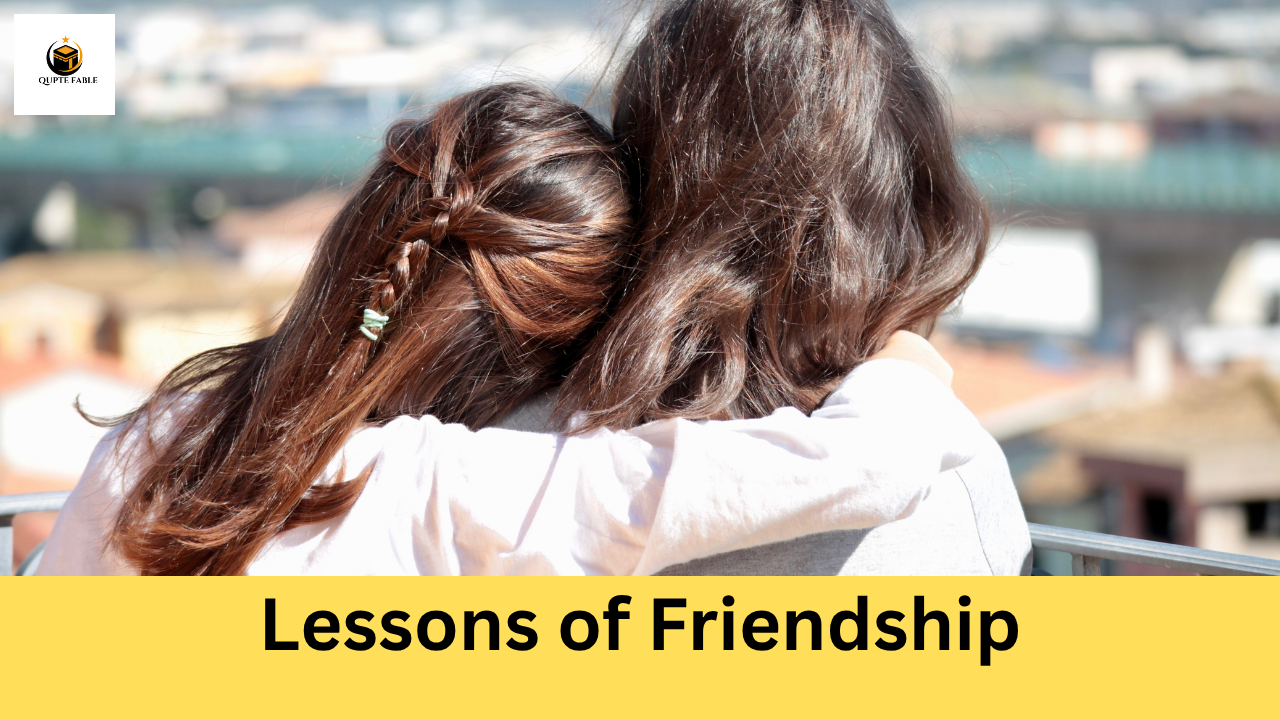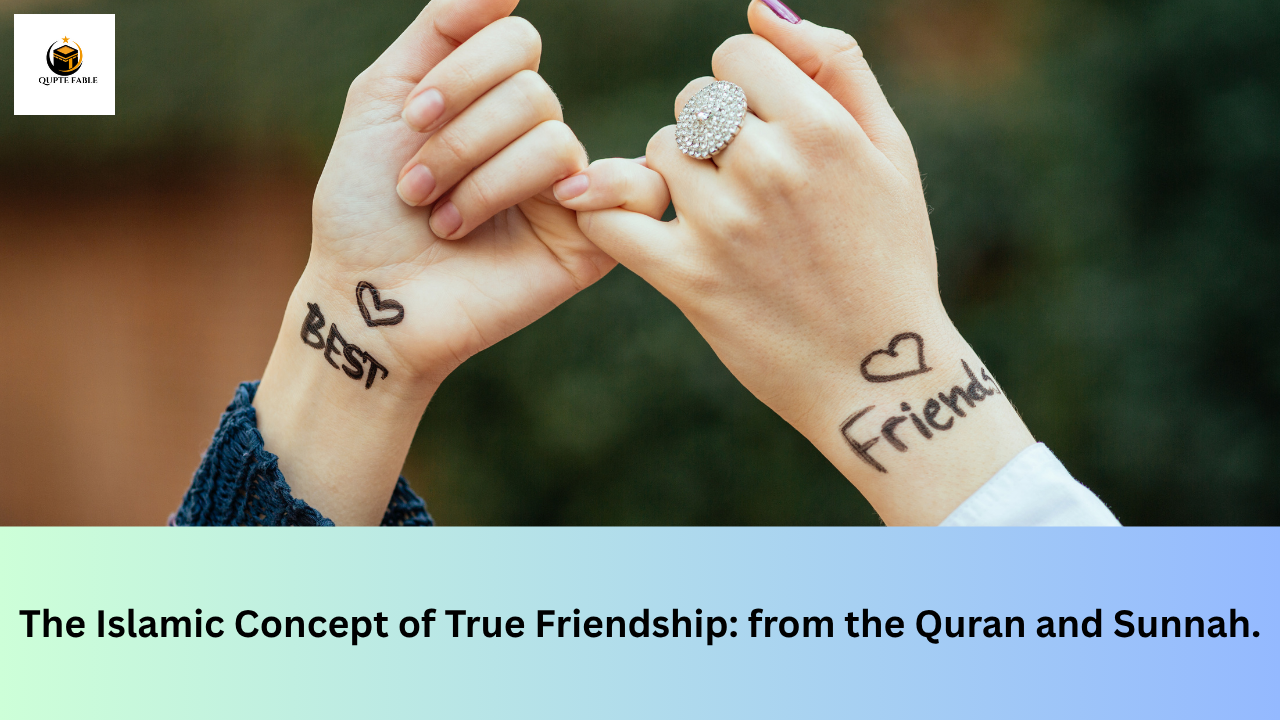The friendship between Prophet Muhammad (PBUH) and Hazrat Abu Bakr (RA) stands as one of the most profound bonds in Islamic history—a relationship built on unwavering faith, selfless sacrifice, and divine companionship. From the very first moment of revelation, Abu Bakr (RA) embraced Islam with complete conviction, earning the title “As-Siddiq” (The Truthful) for his absolute belief in the Prophet’s message. Their connection was not merely one of personal affection but a spiritual alliance that shaped the destiny of Islam, demonstrating how true friendship in the sight of Allah is rooted in righteousness and devotion.
Throughout the trials of Makkah and the challenges of Madinah, Abu Bakr (RA) remained the Prophet’s (PBUH) most trusted confidant, protector, and supporter. Whether in the Cave of Thawr, on the battlefield, or in moments of deep personal grief, their friendship exemplified loyalty, courage, and trust in Allah’s plan. The Prophet (PBUH) himself honored this bond, declaring, “No one has been a better companion to me than Abu Bakr.” Their story is not just a historical account but a timeless lesson on the power of sincere brotherhood in faith.
Islamic Quotes on Friendship.
- “A true friend is a blessing from Allah; they remind you of Him and guide you towards goodness in every step.”
True friendship in Islam is rooted in faith, encouraging each other to stay on the righteous path. - “Choose friends who lift your iman, for their words will either strengthen your soul or lead you astray.”
Friends influence your faith—surround yourself with those who bring you closer to Allah. - “A friend who stands by you in hardship is a treasure; their loyalty reflects the mercy of Allah.”
Real friends stay during trials, just as true believers remain steadfast in faith. - “The best friendships are those where silence feels like dhikr, and conversations feel like reminders of Jannah.”
A pure friendship feels peaceful, filled with remembrance of Allah and mutual goodness. - “A righteous friend is like a mirror—they show your flaws with kindness and help you become better.”
True friends correct you gently, helping you grow in both deen and character.

Islamic Quotes on Fake Friends
- “Beware of those who smile to your face but envy your blessings; their hearts are empty of sincerity.”
Fake friends disguise jealousy with false kindness, while true believers rejoice in your success. - “A fake friend abandons you in hardship, but a believer’s loyalty shines brightest when you need them most.”
True friendship is tested in difficulty; those who leave were never real companions. - “If their words praise you but their actions harm you, know that their friendship is nothing but deception.”
Hypocrisy in friendship is worse than open hatred—recognize it and distance yourself. - “A false friend is like a shadow—present in your light but disappears in your darkness.”
Only those who stay in your struggles deserve a place in your life. - “Allah warns us of those who betray trust; a fake friend’s sweetness is often a trap.”
The Quran reminds us to be cautious of those who misuse friendship for selfish gain.
Quran Quotes on Friendship
- “The believers are brothers, so reconcile between them and fear Allah that you may receive mercy.” (Quran 49:10)
Allah commands unity among believers, reminding us that true friendship is based on faith and compassion. - “And hold firmly to the rope of Allah and do not be divided.” (Quran 3:103)
Genuine friendship means staying united in faith, supporting each other in obedience to Allah. - “Your ally is none but Allah and His Messenger and the believers.” (Quran 5:55)
True loyalty lies with Allah, His Messenger, and the righteous—choose friends who share this bond. - “Do not take enemies as allies, showing them affection while they disbelieve in the truth.” (Quran 60:13)
Allah warns against befriending those who oppose faith, as their influence can corrupt the heart. - “The Day when a close friend will not avail a friend at all, except by Allah’s mercy.” (Quran 44:41)
On Judgment Day, only Allah’s mercy will matter—choose friends who help you earn His pleasure.
This collection of Islamic quotes on friendship highlights the importance of sincere companionship, warns against fake friends, and reminds us of the Quran’s timeless wisdom in choosing righteous allies. True friendship in Islam is a bond that strengthens faith, fosters goodness, and leads to Allah’s pleasure.
The Unbreakable Bond: The Friendship of Prophet Muhammad (PBUH) and Hazrat Abu Bakr (RA)
In the early days of Islam, when the message of Allah was still new and the Quraysh leaders of Makkah fiercely opposed it, the friendship between Prophet Muhammad (PBUH) and Hazrat Abu Bakr (RA) stood as a beacon of loyalty, trust, and sacrifice.
1. The First Believer
When the Prophet (PBUH) received the first revelation, he was shaken and uncertain. The first person he confided in was Abu Bakr (RA), who, without hesitation, declared, “If you say it is from Allah, then it is the truth!” He became the first adult male to embrace Islam, earning the title “As-Siddiq” (The Truthful).
2. Standing Firm in Persecution
As the persecution of Muslims intensified, Abu Bakr (RA) remained the Prophet’s strongest supporter. He used his wealth to free enslaved Muslims like Bilal (RA) and stood by the Prophet (PBUH) even when others turned away.
3. The Journey of Hijrah
When the Quraysh plotted to kill the Prophet (PBUH), Allah commanded him to migrate to Madinah. Abu Bakr (RA) was chosen as his companion. They hid in the Cave of Thawr for three days, with Abu Bakr (RA) ensuring the Prophet’s safety—even placing his foot over a snake’s hole to protect him.
When the Prophet (PBUH) saw his fear, he comforted him, saying, “Do not grieve; Allah is with us.” (Quran 9:40). This moment became a symbol of their unshakable trust in Allah and each other.

4. The Closest Companion
In Madinah, Abu Bakr (RA) remained the Prophet’s most trusted advisor. He led prayers in the Prophet’s absence, fought alongside him in battles, and was always by his side. The Prophet (PBUH) once said, “If I were to take a Khalil (close friend), I would have taken Abu Bakr, but he is my brother and companion.” (Bukhari)
5. The Final Moments
When the Prophet (PBUH) passed away, the Ummah was in shock. It was Abu Bakr (RA) who comforted the people, saying, “Whoever worshipped Muhammad, know that Muhammad has died. But whoever worshipped Allah, then Allah is Ever-Living and never dies.” (Bukhari)
His leadership after the Prophet’s death ensured the unity of Islam, proving that their friendship was not just personal but a divine bond for the sake of Allah.

Lessons from Their Friendship
- Loyalty in Faith: Abu Bakr (RA) never doubted the Prophet (PBUH).
- Sacrifice: He gave his wealth, safety, and life for Islam.
- Trust: The Prophet (PBUH) trusted him above all others.
- Leadership: Their friendship strengthened the entire Ummah.
The bond between Prophet Muhammad (PBUH) and Abu Bakr (RA) remains the greatest example of true Islamic friendship—rooted in faith, tested in hardship, and blessed by Allah.
“Hold firmly to the rope of Allah and do not be divided.” (Quran 3:103) – Their friendship embodied this verse perfectly.
The Importance of Choosing Righteous Friends
Allah (SWT) emphasizes the impact of companionship in the Quran:
“And keep yourself patient [by being] with those who call upon their Lord in the morning and the evening, seeking His countenance.” (Quran 18:28)
This verse teaches us that surrounding ourselves with pious friends strengthens our iman, encourages good deeds, and protects us from sin. The Prophet (PBUH) illustrated this with a powerful analogy:
“The example of a good companion and a bad companion is like that of a seller of musk and a blacksmith. The seller of musk will either give you perfume, you will buy some, or you will enjoy his pleasant smell. As for the blacksmith, he will either burn your clothes or you will be exposed to his awful smell.” (Bukhari & Muslim)
Key Lessons:
- Friends influence our faith – A righteous friend reminds us of Allah, while a bad companion can lead us away from Him.
- Quality over quantity – It is better to have a few sincere, God-fearing friends than many who distract us from the truth.
- Friendship is a responsibility – We must nurture bonds that please Allah, not just those based on worldly interests.
The Characteristics of a True Friend in Islam
From the Sunnah and the lives of the Sahaba, we learn the qualities of an ideal Islamic friend:
1. They Help You Obey Allah
A true friend encourages you to pray, recite Quran, give charity, and avoid sin. The Prophet (PBUH) said:
“A man is upon the religion of his best friend, so let one of you look at whom he befriends.” (Tirmidhi)
2. They Are Honest & Sincere
A real friend advises you with kindness, even if it’s difficult. The Prophet (PBUH) said:
“Religion is sincerity.” (Muslim)
This includes being truthful with friends for their own good.
3. They Stand By You in Hardship
Like Abu Bakr (RA) in the Cave of Thawr, a genuine friend remains loyal in times of difficulty. Allah says:
“The believers are brothers, so make peace between your brothers and fear Allah that you may receive mercy.” (Quran 49:10)
4. They Forgive Your Mistakes
A righteous friend does not hold grudges but forgives and advises with patience. The Prophet (PBUH) said:
“The believers in their mutual kindness, compassion, and sympathy are like one body. When one part suffers, the whole body feels pain.” (Bukhari & Muslim)
Warning Against Bad Company
Just as good friends elevate us, bad companions can destroy our faith. Allah warns:
“And the Day the wrongdoer will bite on his hands [in regret], saying, ‘I wish I had taken with the Messenger a way. Oh, woe to me! I wish I had not taken that one as a friend.’” (Quran 25:27-28)
Signs of a Harmful Friendship:
- They distract you from worship and obligations.
- They mock Islamic values or encourage sin.
- They are only present in good times but abandon you in hardship.
How to Be a Good Friend in Islam
- Prioritise sincerity – Love for the sake of Allah, not worldly gain.
- Give good advice (Nasihah) – Gently correct mistakes and encourage good deeds.
- Be dependable – Keep promises, support in times of need, and avoid gossip.
- Pray for each other – The dua of a friend is among the most accepted.
Conclusion: Friendship as Worship
In Islam, friendship is not just a social bond—it is an act of worship when done for Allah’s sake. The Prophet (PBUH) said:
“Allah will ask on the Day of Judgment: ‘Where are those who loved each other for My sake? Today, I will shade them in My shade when there is no shade but Mine.’” (Muslim)
Let us choose friends who remind us of Allah, stand by us in trials, and help us reach Jannah. And let us strive to be such friends to others, guiding, supporting, and loving for the sake of Allah alone.
“And hold firmly to the rope of Allah and do not be divided.” (Quran 3:103)
May Allah bless us with righteous companions and make us a source of goodness for others. Ameen.
Conclusion: A Friendship Written in Light
The friendship between Prophet Muhammad (PBUH) and Abu Bakr (RA) was more than companionship—it was a divine bond, nurtured by faith, tested by trials, and immortalised by sacrifice. Their story teaches us that worldly benefits do not measure true friendship in Islam, but by sincerity, sacrifice, and steadfastness in the path of Allah. Abu Bakr (RA) stood by the Prophet (PBUH) in moments of fear, hardship, and triumph, proving that the strongest relationships are those built upon trust in Allah and devotion to His cause.
Please read the related post: 20+quotes Right of a wife in Islam.

